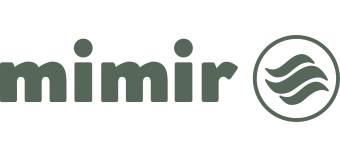
Geautomatiseerd vacatures beheren op AcademicTransfer
Met behulp van de vacaturebeheerdiensten van Mimir kunt u geautomatiseerd vacatures beheren op AcademicTransfer.
Laatste vacatures
PhD on Nutrient Dynamics from Field to Landscape in Regenerative Agriculture
Are you interested in a PhD focusing on the nutrient dynamics from field to landscape in Regenerative Agriculture? Working with pioneer regenerative farmers across the Netherlands, this PhD will analyse the nutrient (N, P and K) and carbon flows across a range of pioneer regenerative farm systems in the Netherlands. These farm systems will include dairy, horticulture and arable farming systems with for example agroforestry or cut and carry fertilisers, but also regional cooperation between farm systems or cooperation of farms with nature conservation organisations. The research will focus on: What are the nutrient and carbon flows on these different farming systems and where are leaks in the system? What are options to optimise these nutrient and carbon flows and balances on farm, landscape and regional level? And assess the nutrient performance, soil and animal health, and different costs and benefits (including ecosystem services) of these systems?
There is steadily growing pressure on agriculture and the entire food system to increase global production while promoting sustainability in terms of farmers' incomes, soil health, input use, and environmental and climate impact. Regenerative agriculture is a promising avenue to support a healthy, multi-functional and future-proof soil and farming system. Together with regenerative Dutch farmers, ReGeNL is developing a future-proof agricultural sector in which agriculture goes hand in hand with soil health and nature restoration, and a good revenue model for farmers. Between now and 2030, ReGeNL will start the transition to regenerative agriculture with 1000 farmers. The aim is to make regenerative agriculture the new normal by 2040.
This PhD will be one of 19 PhDs being recruited over the next 4 years, to support the monitoring, modelling and valuing of regenerative farms in the Netherlands. This large-scale transdisciplinary project (ReGeNL) will assess which combinations of practices are adopted/recommended for 8 different types of regenerative agriculture systems. The project aims to be an accelerator for the transition to a regenerative, profitable and socially supported agricultural sector. As part of this project, we will monitor and model a range of different regenerative agricultural systems to understand which combinations of practices work for a range of agricultural, socio-economic and environmental outcomes. The outcomes assessed include; soil health, water and air quality, biodiversity and socio-economic goals such as farm income, citizen involvement, animal welfare and much more. Moreover, we will study how performance on these outcomes can be valued in food system governance.
You will work here
This PhD will be based within the Farming Systems Group at WUR, the Louis Bolk Institute, and with Van Hall Larenstein. During this project you will be involved in on-farm sampling (soil, crop and products) and data collection. You will investigate the nutrient and carbon flows in a range of pioneer regenerative farms, and study the different measures they take to close and improve nutrient and carbon cycles on farm and regional level, inspired by the framework of ‘nested circularity’. You will assess the effects of these measures on ecosystem services. This PhD will work alongside with other PhDs on soil quality in the project. The outputs from these PhDs will support model developments for further quantification of the role of soil health in regenerative systems.
AcademicTransfer
0 sollicitaties
0 views
26-07-2024 Wageningen University & Research
Onderzoeksassistent ichthyoplankton
Als onderzoeksassistent ichthyoplankton ga jij histologische monsters verwerken en analyseren volgens internationale handleidingen. Jij verwerkt de monsters in het laboratorium door middel van microscopie en beeldanalyse, en het maken van histologische preparaten. De monsters bestaan uit viseieren, -larven, visgonaden en maaginhouden van vissen. Je past hierbij jouw kennis en expertise over taxonomie en determinatie toe. Beeldanalyse wordt gedaan met histologische preparaten van visgonaden en viseieren en -larven. De resultaten van deze analyses verwerk je nauwkeurig in data templates en via specifieke software.
Jouw taken en verantwoordelijkheden als onderzoeksassistent ichtyoplankton zijn:
- Verwerking en analyse van monsters;
- data en resultaten verwerken;
- deelname aan kalibratieworkshops.
Team en locatie
Jij gaat samenwerken met een bevlogen onderzoeksteam van Wageningen Marine Research op onze locatie in IJmuiden. Met deze groep van specialisten werk je samen aan projecten. Daarnaast vaar je een aantal keer per jaar mee met meerdaagse surveys op zee voor het verzamelen en verwerken van monsters.
AcademicTransfer
0 sollicitaties
0 views
26-07-2024 Wageningen University & Research
PhD Position - Transforming Food Systems for enhanced resilience
Are you looking for a PhD and interested in the economics of food systems? Do you want to use quantitative methods to identify promising interventions to enhance food security resilience? Then, this PhD vacancy may be of interest to you.
The Development Economics group at Wageningen University and Wageningen Economic Research are looking for a PhD candidate in the area of food systems transformation, focusing on resilience. There is pressing need for transforming the food system. First, the current food system does not deliver the social, just and sustainable patterns of food consumption the world urgently needs. Second, the upheaval of food markets resulting from the COVID-19 pandemic and the Russian war on Ukraine has (re-)drawn attention to the limited stability and resilience of Food Systems.
Transformation is a process that progresses through a set of changes in beliefs, information, policy regulation and economic incentives, and often a combination of these all. Such changes, for different sets of actors in the food system, are eventually anticipated to lead to changes in production, trade and consumption, and the system outcomes as a whole. Using the food system as an analytical concept enables/urges researchers to study processes of transformation in their wider socio-economic and political contexts: not only to address what needs to change, but often more importantly, how such change can take place.
The food system approach has led to a broader appreciation of the complexity of food systems and their vulnerability to shocks and stressors, i.e. the level of FS resilience. The objective of strengthening FS resilience has led to a lively debate on its conceptualization and the elements that constitute resilience for different actors (and those that do not) and subsequently how these elements can be translated into measurable indicators. With consensus slowly emerging on the conceptualization of resilience, first strides being made on its empirical measurement.
As a PhD student, you contribute to strengthening the empirical foundations of food system resilience. Specifically, you will work on
- assessing the current knowledge on the heterogeneous impacts of interventions for enhancing food system resilience and the mechanisms underlying these impacts;
- selecting and evaluating the impact of promising interventions to enhance food system resilience;
- analyzing potential trade-offs and synergies with other selected FS outcomes (nutrition, environment) and how possible trade-offs can be mitigated;
- comparing efficiency and (cost) effectiveness of different interventions.
At Wageningen Economic Research (WEcR) you will further apply and broaden your (gained) empirical knowledge in multiple applied research projects that focus on FS resilience. WEcR advices policy makers and other stakeholders on how food systems can be made more resilient to shocks.
You will work here
The research is embedded within the chair group Development Economics and the Food System and Food System Governance team of Wageningen Economic Research. You will be co-supervised by Dr Marrit van den Berg (DEC-WUR) and Dr Ezra Berkhout (WECR).
You will be working 30 hours for WU and 8 hours for WEcR per week.
AcademicTransfer
2 sollicitaties
0 views
25-07-2024 Wageningen University & Research
PhD position - Genetic and spatial biology of viruses in plant-feeding nematodes
Do you have a keen interest in interactions between hosts and parasites? Would you enjoy to pursue PhD in molecular biology? Are you enthusiastic about combining experimental labwork and next generation sequencing analyses? If yes, then we may have the perfect opportunity for you!
The Laboratory of Nematology at Wageningen University & Research is seeking a motivated and curiosity-driven PhD candidate to join an interdisciplinary and collaborative team aimed at unraveling the biology of viruses of plant-parasitic nematodes. Plant-parasitic nematodes cause severe agricultural damage and only recently the first viruses infecting them have been discovered, presenting new research opportunities to understand and halt these pest species.
As a PhD candidate in this project you will perform and analyze experiments that contain a combination microbiology, molecular biology and next-generation sequencing techniques (e.g. RNA- and Tomo-seq). Specifically, you will localize different viruses in two important plant-parasitic nematode species, map nematode genes involved in infection and may discover viral genes involved in immune suppression. Thereby, you will contribute fundamental understanding of the genetic and spatial interactions between plant-parasitic nematodes and their viruses.
You will work here
The research is embedded within the Laboratory of Nematology led by prof. Geert Smant. Your daily supervisors will be dr. Lisa van Sluijs and dr. Jose Lozano Torres, who have complementary expertise: nematode-virus interactions and genetics (Lisa van Sluijs) and molecular biology of plant-parasitic nematodes and spatial transcriptomics (Jose Lozano Torres).
AcademicTransfer
1 sollicitatie
0 views
25-07-2024 Wageningen University & Research
PhD position: Inter- and intra-specific crop flower variation for pollinator-friendly farming systems
Are you interested in how plants attract pollinators? Are passionate about pollinators and the crop pollination services they provide? Do you want to contribute to the breeding of crops for more pollinator-friendly farming systems? Then we invite you to apply for a PhD position in the Plant Ecology and Nature Conservation group!
Intensive agriculture is one of the main pressures on biodiversity in agricultural landscapes, even though much of the agricultural production depends on this biodiversity for yield. For example, many agricultural crops depend on insects for crop pollination, and with a transition to more plant-based diets this is expected to increase in the future. We therefore need to develop more pollinator-friendly farming systems. At present, intensive agricultural crop fields generally consist of a single cultivar of a crop species, which are bred for the highest response to agricultural inputs such as fertilizer or pesticide resistance, while the contribution of insect pollination is usually undervalued. We need a better understanding on how we can breed for cultivars that are more attractive to pollinators, so that yields can be sustainably enhanced. In this PhD project we will unravel the relative importance of crop flower traits for pollinator attraction and identify the underlying genetic patterns. We will also evaluate the relative importance is of inter- and intraspecific variation in crop flower traits for crop pollination under different environments and management.
The main focus of the successful PhD candidate will be on genetic mapping of flowering traits, and fieldwork for three seasons in France and the Netherlands. Other activities include fieldwork preparation, flower trait characterisation, estimation of pollinator visitation rates and seed set of plants, genetic mapping analysis, advanced statistical data analyses, and writing. The PhD candidate is responsible for data collection in France, data generation in the Netherlands, and will also be in the lead for an overall analysis of the relative importance of inter- and intraspecific flower trait variation for crop pollination services and crop yield performed in Italy, France and the Netherlands.
You will work here
You will be embedded within the Plant Ecology and Nature Conservation group Daily supervision will be done by prof. dr. David Kleijn, dr.Thijs Fijen, prof.dr.Luisa Trindade, and dr.Andries Temme You will be part of a 18 partner HorizonEurope project in which coordinated empirical work will take place on plant breeding, crop pollination, pollinator biodiversity, value chains and policy.
AcademicTransfer
0 sollicitaties
0 views
24-07-2024 Wageningen University & Research


